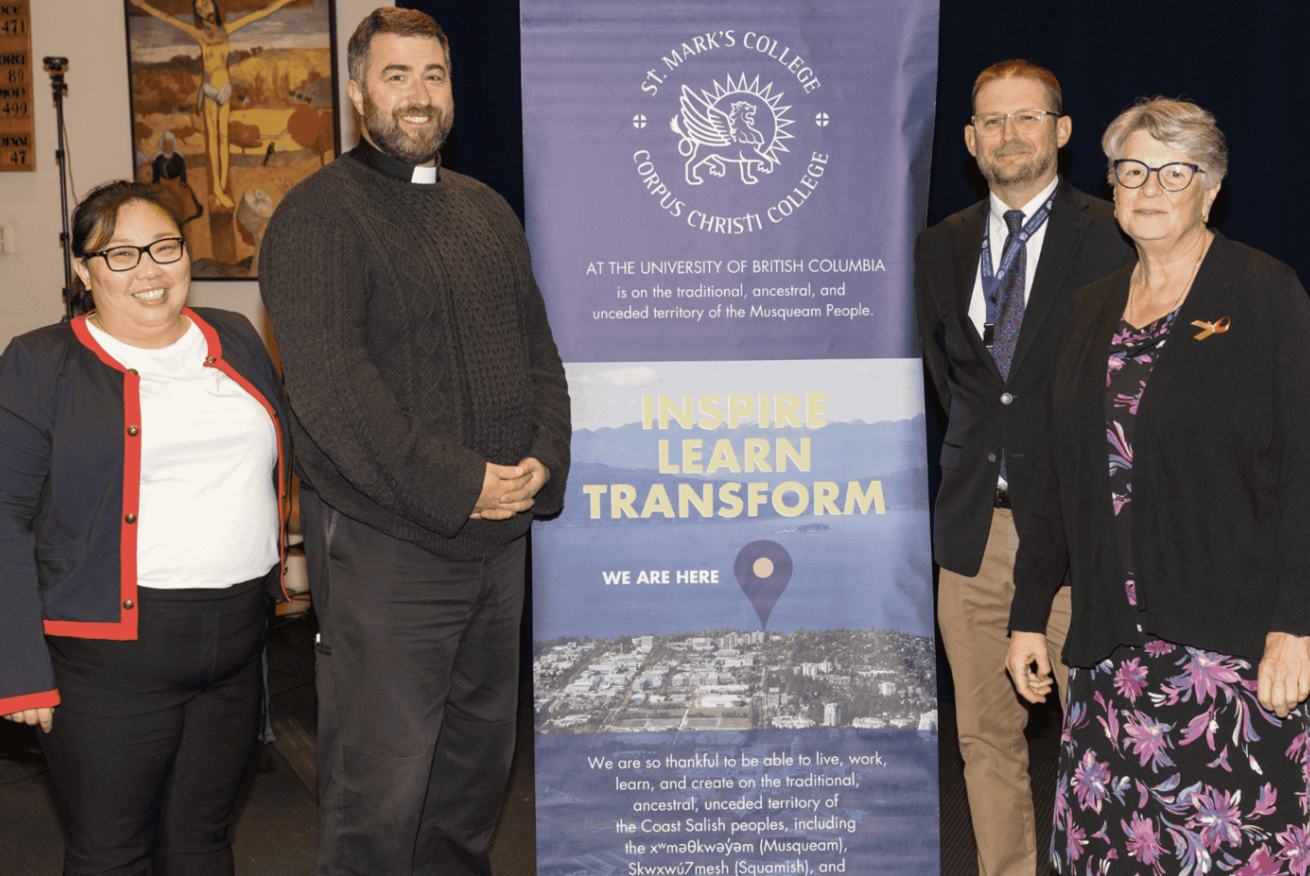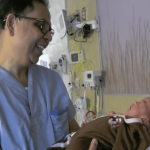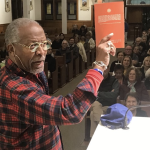VANCOUVER (CCN) — When more than 30 Catholic leaders from Victoria to Whitehorse gathered for a summit on ministry at St. Mark’s College in October, they thought they were just having a conversation about what the future holds for their work. Instead, they helped define it, leaving the two-day event with news of a five-year, US$1 million project to train lay and diaconate leaders in underserved dioceses in B.C. and Yukon.
The Future of Ministry: Forming and Empowering Leaders for Mission brought together lay and ordained ministers for presentations and synodal-style conversations on the changing landscape of pastoral leadership. The event was supported by a planning grant from Lilly Endowment, a philanthropic foundation that supports religion, education, and community development.
At the beginning of the summit, St. Mark’s College principal Dr. Gerry Turcotte announced that the college had received a US$1-million Lilly Endowment Pathways for Tomorrow implementations grant to continue the ministry development work over the next five years.
Backed by every Catholic bishop in B.C. and the Yukon, the new project will launch a Centre for Ministerial Formation, a province-wide hub that helps train and support people serving in the Church. The centre will help form both lay ministers and men preparing for the permanent diaconate.
Over the next five years, a mix of online and in-person learning will be offered, including summer sessions, workshops, and conferences. The centre will make it easier to take theology and leadership courses, especially for communities that don’t have easy access to formal programs. The project will also make library and distance-learning tools available to reach students who might never come to campus.
Barriers like those were addressed in the presentations, which opened with a public lecture and discussion led by the Rev. Dr. Ross Lockhart, professor of mission studies at Vancouver School of Theology and dean of St. Andrew’s Hall. Drawing from his own research, Dr. Lockhart invited participants to reflect on what it means to do ministry in a post-Christian society and to discern how God is calling local churches today.
Dr. Nicholas Olkovich, who holds the Marie Anne Blondin Chair in Catholic Theology at St. Mark’s, opened the day by reflecting on ministry as a calling to form others in discipleship and on the importance of preparing ministers for public leadership in the Church.
Father Bryan Duggan, director of psychological services for priests and seminarians in the Archdiocese of Vancouver, led the second session on human formation, focusing on how mindfulness and active listening can shape pastoral practice.
A third session, led by Maureen Kinahan, director of campus ministry at Vancouver College, looked at how prayer and spiritual reflection can keep ministry rooted in faith and gave a guided meditation drawn from the Jesuit tradition of “spiritual conversation.”
In the final session, Father Nick Meisl, pastor of St. Peter’s Parish in New Westminster and assistant professor of Scripture at St. Mark’s, invited participants to integrate what they had learned. Highlighting St. Paul’s own formation for ministry, he asked attendees to share their main insights.
Feedback from participants was positive. “I am not exaggerating when I say that this weekend was one of the highlights of my faith and professional work,” said Kinahan. “It was so good and affirming and energizing to be with people of one heart and one mind.”
Angelique Rasmussen, a Catholic educator and parish minister based on Vancouver Island, said she “felt a sense of collegiality and belonging,” adding that she was grateful “to be part of the initiation of what is sure to be an important and impactful ongoing effort.”
Sustaining that effort is the $1 million Lilly implementation grant that will allow the work to continue over the next five years, starting in 2026.
Lilly’s Pathways for Tomorrow project has helped theological colleges take on transformational work in their communities, Turcotte said. “Our new Centre for Ministerial Formation will inspire and enable St. Mark’s College to expand the reach of theological education and help deepen collaboration across B.C. and the Yukon.”
Christopher L. Coble, Lilly Endowment’s vice-president for religion, said the grant reflects a larger effort to help theological schools adapt to the Church’s changing needs. “Theological schools are paying close attention to the challenges churches are facing today and will face in the foreseeable future.”
For many participants, the summit and the grant that followed are a sign of renewal for the Church in Western Canada. As one participant said, the Church must form ministers and leaders “not for an imagined past or future fantasy, but for the present real context in which the Church finds herself.”
St. Mark’s College will hire a director to lead the new centre, which will be a resource for diocesan partners looking for ways to strengthen pastoral leadership.
For Turcotte, the project’s timing couldn’t be more fitting. As St. Mark’s celebrates its 70th anniversary, the grant signals both recognition and renewal. “Our college has already begun the work of helping our stakeholders stay connected, but the impact of this grant will help us accelerate our work exponentially,” he said. “In a constantly evolving pastoral landscape marked by new and emerging challenges, the Lilly grant offers hope and opportunity.”
St. Mark’s College is one of 163 theological schools across North America that have received grants through the Lilly Endowment’s Pathways for Tomorrow initiative.
St. Mark’s College is among a handful of Canadian Catholic theological schools to move from a Pathways for Tomorrow planning grant to full Phase 2 implementation funding—a US$1-million award from Lilly Endowment Inc.
Other recipients are:
- University of St. Michael’s College
- St. Peter’s Seminary, London, Ont.
- St. Augustine’s Seminary, Archdiocese of Toronto
The grant is part of the Endowment’s Pathways for Tomorrow initiative, launched in 2021 to help theological schools strengthen how they form and prepare pastoral leaders for today’s Church.
Founded in 1937 by J.K. Lilly Sr. and his sons through gifts of Eli Lilly and Company stock, Lilly Endowment Inc. is a private philanthropic foundation, independent from the pharmaceutical firm, with a mission focused on religion, education, and community development.
Through Pathways for Tomorrow, Lilly Endowment has awarded grants to 163 theological schools across the U.S. and Canada, representing a wide spectrum of Christian traditions—Catholic, Orthodox, evangelical, mainline Protestant, Black church, Latino, Asian American, Indigenous, and historic peace churches.
“Theological schools have long played a central role for most denominations and church networks in preparing and supporting pastoral leaders who guide congregations,” said Christopher L. Coble, the Endowment’s vice-president for religion. “The grants will help these schools engage in wide-ranging, innovative efforts to adapt their educational programs and build their financial capacities so they can better prepare pastors and lay ministers to effectively lead the congregations they will serve in the future.”




